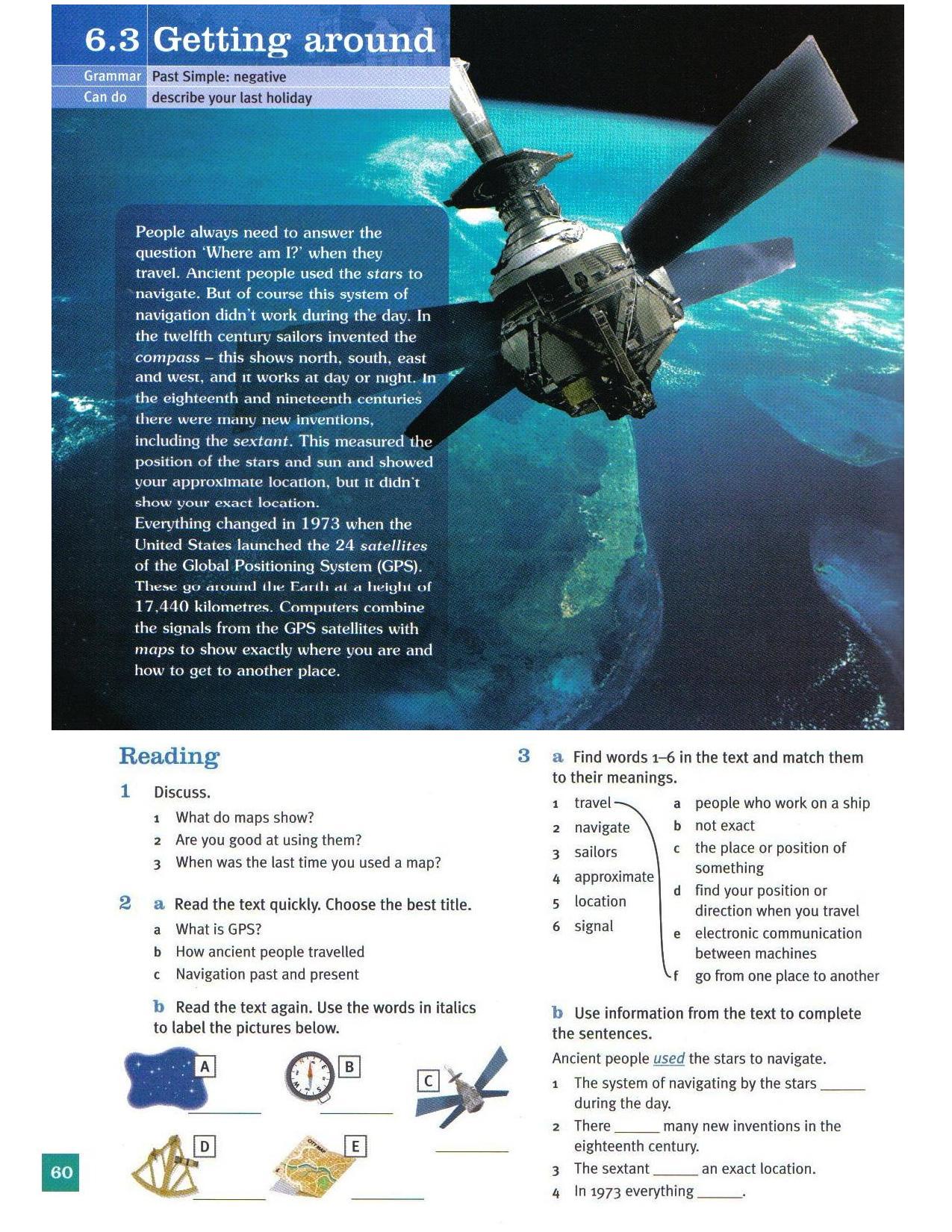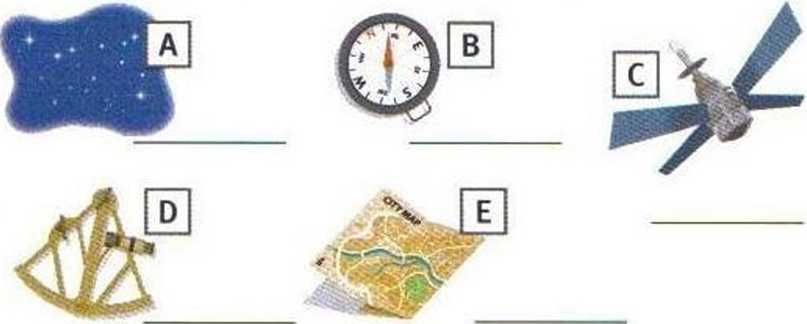strona` (4)

6.3 Getting around
Grammar
Past Simple: negative
describe your last holiday
People always need to answer the question ‘Where am I?’ when they travel. Ancient people used the stars to navigate. But of course this system of navigation didnt work during the day. In the twelfth century sailors invented the compass - this shows north, south, east and west, and it works at day or night. ln the eighteenth and nineteenth ccnturics there were many new inventions, including the sextant. This measured the position of the stars and sun and showed your approxlmate locatlon, but it didn t show your cxact location.
Everything changed in 1973 when the United States łaunched the 24 satellites of the Global Positioning System (GPS).
These go rumu ul tlifc* Fdrlli r*f a łit/ighf of
17,440 kilometres. Computers combine the signals from the GPS satellites with mops to show exactly where you are and how to get to another place.
|
to their meanings. | ||
|
1 |
travel“^ |
a |
|
2 |
navigate \ |
b |
|
3 |
sailors |
\ c |
|
4 |
approximate |
11 A |
|
5 |
location |
0 |
|
6 |
signal |
G |
f
Reading
1 Discuss.
1 What do maps show?
2 Are you good at using them?
3 When was the last time you used a map?
2 a Read the text quickly. Choose the best title. a What is GPS?
b How ancient people travelled c Navigation past and present
b Read the text again. Use the words in italics to label the pictures below.

3 a Find words 1-6 in the text and match them
people who work on a ship not exact
the place or position of something find your position or direction when you travel electronic communication between machines go from one place to another
b Use information from the text to complete the sentences.
Ancient people used the stars to navigate.
1 The system of navigating by the stars_
during the day.
2 There_many new inventions in the
eighteenth century.
3 The sextant_an exact location.
4 In 1973 everything_.
Wyszukiwarka
Podobne podstrony:
33329 stronaa (3) Grammar I Past Simple: negative 4 Read the sentence in the Active grammar box.&nbs
stronaX (4) 6.2 Missing*! Grammar Past Simple: question forms and short answers Can do understand
36410 stronaq (3) Grammar I Past Simple: irregutar verbs 7 Look at the Active grammar box. Match the
skan 3 Grammar past simpłe or past continuous? New English File Teacher * Book Pre-intermediate Phot
77815 img047 3 PRACTICAL TATTINGEDGING D_ This pattern is much simpler than it looks. You will need
img047 3 PRACTICAL TATTINGEDGING D_ This pattern is much simpler than it looks. You will need to win
52270596412303729725q042322 n Simple five step plan for just about everyone and everything The numbe
img047 3 PRACTICAL TATTINGEDGING D_ This pattern is much simpler than it looks. You will need to win
77815 img047 3 PRACTICAL TATTINGEDGING D_ This pattern is much simpler than it looks. You will need
72565 stronap (4) 7.3 Finders keepers! Grammar Can do Past Simple: irregular verbs understand an art
strona& (14) Grammar tan doDrive time Present Simple: negative talk about your free time TRRFFIC jrm
więcej podobnych podstron